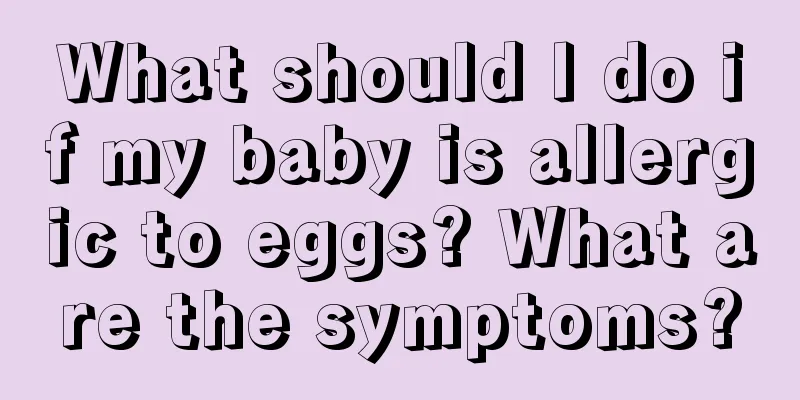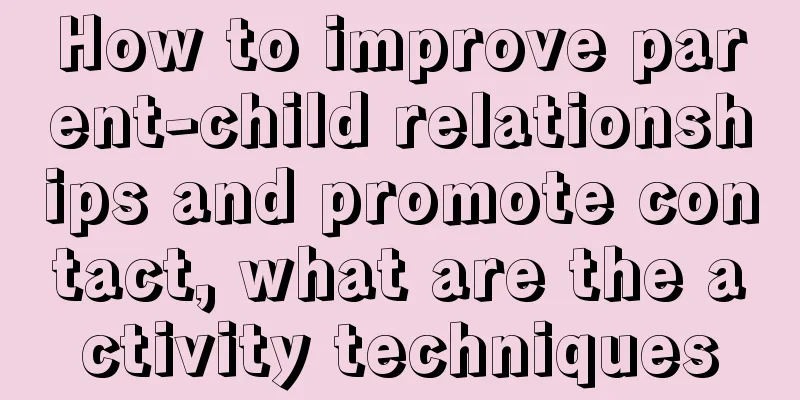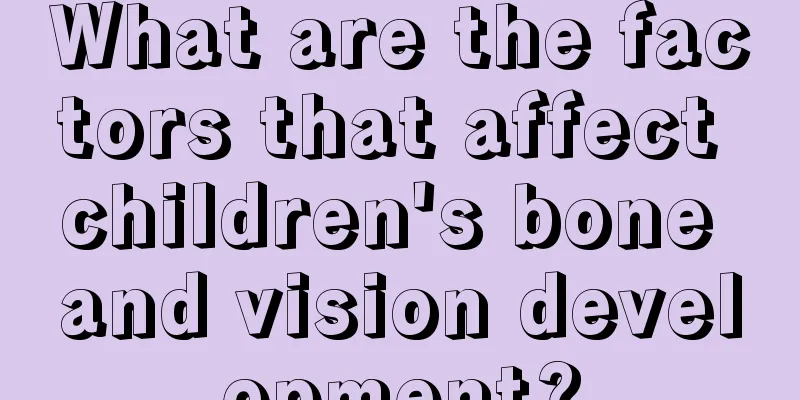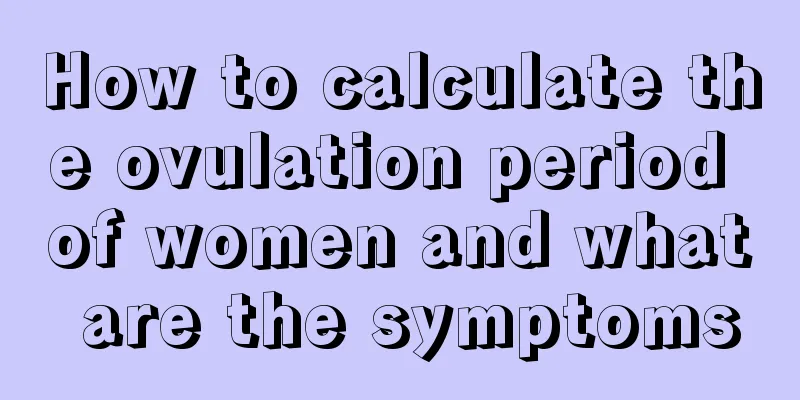What should I do if my baby is allergic to eggs? What are the symptoms?

|
Eggs contain a variety of nutrients and are very helpful to human health. However, infants and young children are very likely to be allergic to eggs, mainly because the baby's immune system is not fully mature, and it is easy to overreact to eggs and cause allergies. So what should I do if my baby is allergic to eggs, and what are the symptoms? Causes of baby allergy to eggsWhat is egg allergy: Egg allergy is a bad chemical reaction that occurs after eating eggs. Eggs are allergic foods and can easily cause allergic reactions in infants and young children. Babies may have rashes or indigestion. Symptoms of egg allergy: When a baby is allergic to eggs, they usually show some symptoms, such as skin inflammation or hives, digestive problems, signs of asthma, nasal congestion, itching around the mouth, rapid heartbeat, low blood pressure, etc. Egg allergy causes: Food allergies are triggered when your baby's immune system overreacts. When the immune system fights egg proteins, it releases histamine and other chemicals that trigger an allergic reaction. What to do if your baby is allergic to eggsMedications are available to treat egg allergies, such as antihistamines. If your baby has a severe allergic reaction, an emergency injection of epinephrine may help. Eggs are foreign proteins and are contained in the measles vaccine. If you are allergic to animal protein, you should not take the vaccine. You may experience allergic reactions after the vaccine. The baby is small now, so when eating eggs, he can only start by eating the egg yolk, and then slowly transition to eating the egg white when he is older. How to prevent baby egg allergyIf your baby is allergic to eggs, avoid feeding him processed foods that contain eggs, such as mayonnaise, pudding, cake, marshmallows, salad dressing, pasta, cookies, etc. When you buy food for your toddler, remember to read the packaging carefully and choose foods that do not contain eggs to avoid any chance of triggering allergies. If your baby is allergic to eggs or any other food, be sure to inform the teacher or nanny to prevent the baby from having an allergic reaction due to accidental ingestion. If you are breastfeeding, you also need to avoid any food containing eggs to prevent your baby from developing an allergy to your breast milk. |
<<: Can babies eat glutinous rice balls? How old should babies be to eat glutinous rice balls?
>>: Why is ovulation induction not the first choice for follicular hypoplasia
Recommend
Can pregnant women eat turkey? It has high nutritional value.
Pregnant women can eat turkey. The nutritional va...
How to prevent amblyopia in infants and young children? Three methods to prevent it reasonably
Nowadays, many children are myopic, and the age o...
Is Feihe milk powder good? Introduction to Feihe milk powder
When it comes to Feihe milk powder, everyone shou...
What causes a baby's stuffy nose? What should I do if my baby spits up milk due to a cold?
Nasal congestion is the most common symptom of a ...
What should I do if I catch a cold during confinement? What are the consequences of catching a cold during confinement?
After giving birth, you must stay in confinement....
Teach your baby to eat by himself. Have you done these?
Generally, babies can learn to eat by themselves ...
Why are children moody? How to deal with children's moodiness
Sometimes children may be moody or unhappy becaus...
How many clothes can one Omo laundry detergent bead wash? Is the Omo laundry detergent bead easy to use?
Nowadays, many people like to use laundry beads t...
Can you eat mutton in early pregnancy? Precautions for pregnant women to eat mutton
In our daily life, many people like to eat mutton...
How to clean the yellowed baby bottle? Can I still use the yellowed baby bottle?
The milk bottle plays a very important role in th...
Is it easier for newborns to get bloated at night by breastfeeding or bottle feeding?
When the baby goes to sleep at night, he/she gets...
What is the difference between brushed and pure cotton? What is brushed fabric?
Many people don’t know the difference between san...
What should I do if my baby doesn't want to go to kindergarten? How should I persuade my baby to stop crying and refuse to go to kindergarten?
What should we do if our baby refuses to go to ki...
How long is the shelf life of Unicharm wet wipes? How to check the shelf life of Unicharm wet wipes?
The shelf life of baby products is one of the mos...
Is it good to eat durian during breastfeeding? Does eating durian during breastfeeding increase milk production?
A mouthful of durian is like three chickens. This...









